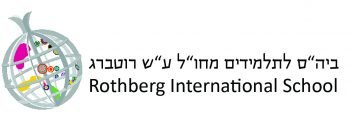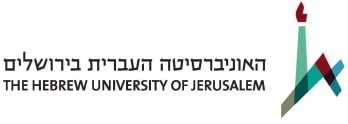Course Highlights
- Take an active part in exposing significant remains from the Canaanite and Israelite periods while exploring the cultural and historical aspect of ancient borders
- Earn academic credit while gaining hands-on experience in all types of archaeological fieldwork and documentation, with an emphasis on pottery identification and micro archaeological methods.
- Tour nearby sites of archaeological and historical interest in the beautiful scenery and cultural diversity of the Upper Galilee.
- Enjoy a vibrant, friendly, diverse and supportive community of people from all over the world who come together to expose the intriguing past
Tel Abel Beth Maacah is one of the largest biblical sites in northern Israel. It was first settled in the Early Bronze Age II (third millennium BCE) and was almost-continuously occupied until the Ottoman period. The city is mentioned three times in the Bible, including the fascinating story of how a local Wise Woman saved it from an attack by King David’s army (2 Samuel 20). The main periods of intense occupation are the Middle Bronze and Iron Ages (second and first millennia BE), which yielded mighty fortifications, numerous jar burials, and unique cultic buildings, among other magnificent finds, such as a one-of-a-kind sculpted head of a local elite male, perhaps representing a king mentioned in the Bible, such as Ahab or Hazael.
The 2024 season at Tel Abel Beth Maacah will focus mainly on exposing more of the huge Iron Age II citadel at the summit of the mound and the rich Iron Age I sequence in its center, as well as the transition from the Late Bronze to the Iron Age.
While you can read about archaeology and watch Indiana Jones re-runs, actually digging the past is second-to-none when it comes to truly experiencing how archaeology can contribute to our cultural and historical understanding. This course is geared to obtaining the basics of field methodology –excavation and documentation – with an emphasis on how to interpret the silent material finds (architecture, stratigraphy, pottery, lithics, stones, floral and faunal remains, metal, etc.) and to relate them to a vital narrative of the past. In addition to the field work, lectures on topics of general and site-specific interest will be given, along with tours to the most-important archaeological sites in the Galilee.
Structure
Daily Schedule (Monday to Friday; Saturday and Sunday free)
4:30 Leave the kibbutz for the bus ride to the tell
4:45 Work begins
7:00 Coffee/tea break
9:30 Breakfast (onsite)
11:30 Fruit/juice break
13:00 Finish digging
13:30 Lunch (at the kibbutz)
14:00-16:00 Free time
16:00 Pottery washing
17:00 Pottery reading/finds’ processing/data entry/microarchaeological flotation
19:00 Dinner (kibbutz)
20:00 Lecture/two to three times a week
Tours:
Fridays: Tell tour (visiting all the excavation areas to view weekly progress)
Sundays: Two tours to sites of archaeological interest in the Galilee and the Golan Heights
See https://www.abel-beth-maacah.org/ and https://www.facebook.com/AbelBethMaacah
Course Components
- Participating in all the excavation days and gaining experience in all aspects of fieldwork and recording (digging, onsite and offsite documentation, measuring/surveying)
- Hands-on reading/sorting of primary materials (pottery, flint, bone, ground stone)
- Lectures on the site and region’s history and archaeology, archaeological field methods, and analysis
- Two day tours to nearby sites (e.g., Hazor, Dan, Banias, Omrit, Katzrin, sites around the Sea of Galilee)
Undergraduate and graduate students; mature learners with an academic background. See the excavation website for more details.
Apply
You can choose to participate in the excavation for the field experience only, or you can decide to also earn credit from Hebrew University during your participation (and transfer the credits to your home institution). The application process differs according to your choice.
Participation Only
You will apply directly to the field school. Please fill out the online registration form on the excavation website. This form is for those who wish to take the Field School for academic credit and for those who wish to participate without credit.
Upon being accepted to the excavation, you will be contacted with further details and instructions. Please see the excavation website for further details on how to apply.
Participation & Academic Credit
In order to apply to earn academic credit for your participation in the archaeological field school, you will complete a three-step process:
- Apply directly to the field school and fill out the online registration form. Please see the excavation website for further details on how to apply
- Attend the excavation and fulfill the academic requirements as determined by the director of your archaeological field school.
- Once you have finished the field school and submitted a research paper, submit an application to HebrewU’s Rothberg International School (RIS) and pay the US$ 120 application fee and the US$ 120 per credit tuition fee.
Contact
We’re happy to answer any questions you might have.
Questions about Tel Abel Beth Maacah
For questions about applying directly to the field school – or any questions about the program – please contact Prof. Robert Mullins
Questions about Academic Credit
For questions about applying for academic credit through HebrewU’s RIS, please contact the Office of Summer Courses and Special Programs.
Find More Summer Courses
Please note that HebrewU reserves the right to cancel courses for which there is insufficient registration.
Fast Facts
Course:
Tel Abel Beth Maacah-In Search of Israelites, Phoenicians and Arameans
Teaching Faculty:
Prof. Naama Yahalom-Mack
Language of Instruction:
English
Program Dates:
June 30 – July 26, 2024
Credits:
1-3
Eligibility:
Undergraduate and graduate students; mature learners with an academic background
Costs:
Academic Credit (optional): US$ 120 per credit
Participation and Housing Fee: see details on the excavation website
Application Deadline:
June 10, 2024

